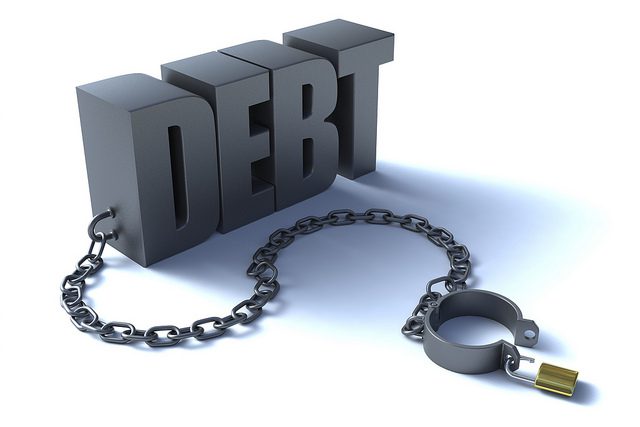Sin is debt. That’s how the Bible describes it. Why?
I’ve given a lot of attention lately to the doctrine of the atonement. One key motif that arises again and again is debt. People are accustomed to using this kind of language, such as when someone says, “Jesus paid our debt.”  In the Lord’s Prayer, Jesus teaches us to pray in this way,
In the Lord’s Prayer, Jesus teaches us to pray in this way,
“ . . . forgive us our debts, as we also have forgiven our debtors. 13 And lead us not into temptation, but deliver us from evil. 14 For if you forgive others their trespasses, your heavenly Father will also forgive you, 15 but if you do not forgive others their trespasses, neither will your Father forgive your trespasses.” (Matt 6:12–15)
It was in Saving God’s Face that I first suggested we owe God an honor debt. If a publisher is interested, I hope to publish something more comprehensive about the atonement. For now, in this post, I’ll limit my focus to a particular question––Why is sin considered a debt.
If we don’t understand the logic behind this language, I don’t think we will fully unpack the implications. I can see various ways that this imagery could shape our theology and open doors for contextualization.
How Do We Become Debtors
Let’s brainstorm the various ways one become a debtor. Here are a few––
1. We borrow things from people (我们跟人借东西).
Matthew 18:23–25, “Therefore the kingdom of heaven may be compared to a king who wished to settle accounts with his servants. 24 When he began to settle, one was brought to him who owed him ten thousand talents. 25 And since he could not pay, his master ordered him to be sold, with his wife and children and all that he had, and payment to be made.”
2. We receive something from a person under the expectation that we should give something else in return. In human relationships, this is simply reciprocity (互惠主义).
This is not necessarily to be thought of as a “pay back.” At some level, all close friendships have this to some degree. We help one another, expecting that one day they too will be there for us. I’m not suggesting that we are all calculating how we will barter favors. However, people understand that relationships require give and take.
With respect to God, he graciously gives us many things. Such gifts are obviously not conditioned on our obedience. However, it is a moral expectation that we respond with gratitude and honor.
3. We owe for damages done to someone’s property ( . . . 欠赔偿费).
In an accident, one might destroy someone’s car or other property. We become liable for the damages.
Exodus 21:35, “When one man’s ox butts another’s, so that it dies, then they shall sell the live ox and share its price, and the dead beast also they shall share.”
4. We owe someone some sort of affection, concern, or respect (…欠人情债).
We could list various relationships, like parents and child, husbands and wives, friends, etc.
Malachi 1:6, “A son honors his father, and a servant his master. If then I am a father, where is my honor?”
5. We have a duty or obligation of some kind (我们欠本分).
This kind of debt applies to relationships between authorities and their subordinates, whether a king, an employer, etc.
Rom 13:7–8, “Pay to all what is owed to them: taxes to whom taxes are owed, revenue to whom revenue is owed, respect to whom respect is owed, honor to whom honor is owed. 8 Owe no one anything, except to love each other, for the one who loves another has fulfilled the law.”
As a side note, the word “to owe” (ὀφείλω) is a part of the same family of words that convey the idea of “debt.”
Naturally, certain images will speak more strongly to certain people. I often say to people that we want to do the best we can to think the Bible’s thoughts after it. We need to understand the why behind various metaphors. By grasping the internal logic of various themes, we can more clearly communicate the gospel. Accordingly, we can know both our freedom and our limits when it comes to contextualization.
What do you think?
Any other ways that we become debtors?
What are some initial implications for theology and ministry?
Photo Credit: www.stockmonkeys.com













